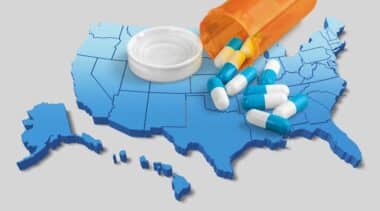-
Public employees are not underpaid
When adjusted for work hours, benefits, and aptitude, there is no meaningful compensation gap between equivalent public and private-sector employees.
-
Healthy families start with compassionate policy: Addressing drug use during pregnancy
Reason Foundation's new model legislation gives states a clear and actionable roadmap for protecting families and improving maternal health outcomes.
-
Existing laws already fight AI housing discrimination—new state AI bills increase confusion
Misguided artificial intelligence regulatory efforts risk limiting innovation and sowing misunderstanding in many markets.
-
Why “good cause” or “just cause” eviction risks undermine housing markets
New York recently passed a law significantly restricting landlords’ ability to remove tenants and imposing new limits on rent increases.
-
Walking away from the California high-speed rail project would be best for taxpayers and the state
Since studies show the train system would lose millions of dollars annually if it ever started operating, paying down the debt is still cheaper for taxpayers.
-
Vermont attempts to regulate political AI deepfakes
Vermont lawmakers have introduced Senate Bill S.23, a proposal aimed at curbing the use of AI-generated synthetic media in state elections.
-
Reducing harm, saving lives: The case for supervised drug consumption sites
Supervised consumption sites offer a targeted, community-driven, and compassionate response to an urgent crisis.
-
Prisons selling vapes? Smart public health policy and a step toward autonomy behind bars
Making vape pens available in prison commissaries could improve inmate health and lower prisons’ healthcare expenses without increasing risk to the public.
-
New York’s RAISE Act expands executive power over AI at the expense of legislative oversight
New York is the latest in a growing number of states attempting to regulate artificial intelligence.
-
Proposed I-5 express lanes would help Southern California’s drivers and economy
Express lanes would reduce congestion along the I-5 corridor. Less stop-and-go traffic also means the project would reduce emissions.
-
Hemp in Texas: Regulation—not THC prohibition—is the sensible path forward
The upcoming special session gives Texas a chance to demonstrate how conservative states can responsibly regulate adult-use substances.
-
Congress, states explore AI tools to fight Medicare, Medicaid fraud
Continued investment in artificial intelligence may help agencies achieve more accurate oversight and reduce waste in public health care spending.
-
Taxpayers shouldn’t bail out the Teachers’ Retirement System of Louisiana without reform
State lawmakers have approved a pair of measures that, while seemingly helpful, could ultimately burden taxpayers without solving the underlying problems.
-
Examining the latest K-12 public school enrollment data and trends
Nationwide, public school enrollment has fallen by 1.28 million students since the start of COVID-19.
-
Mileage-based user fees without GPS might be the best step to replace fuel taxes
Odometer readings could replace fuel taxes today in many states with no new technology needed.
-
Louisiana passes public-private partnership bill for toll road project to Port of New Orleans
A well-executed St. Bernard road corridor public-private partnership offers faster timelines, stronger budget safeguards, and measurable performance guarantees.
-
Trump should end WHO’s sway over the FDA
While the World Health Organization’s potential interference has diminished, remnants of its influence over American health policy remain.
-
Institutional investors are not to blame for U.S. housing prices
Local government policies that do not let housing supply keep up with demand are to blame for disrupted housing markets.

















